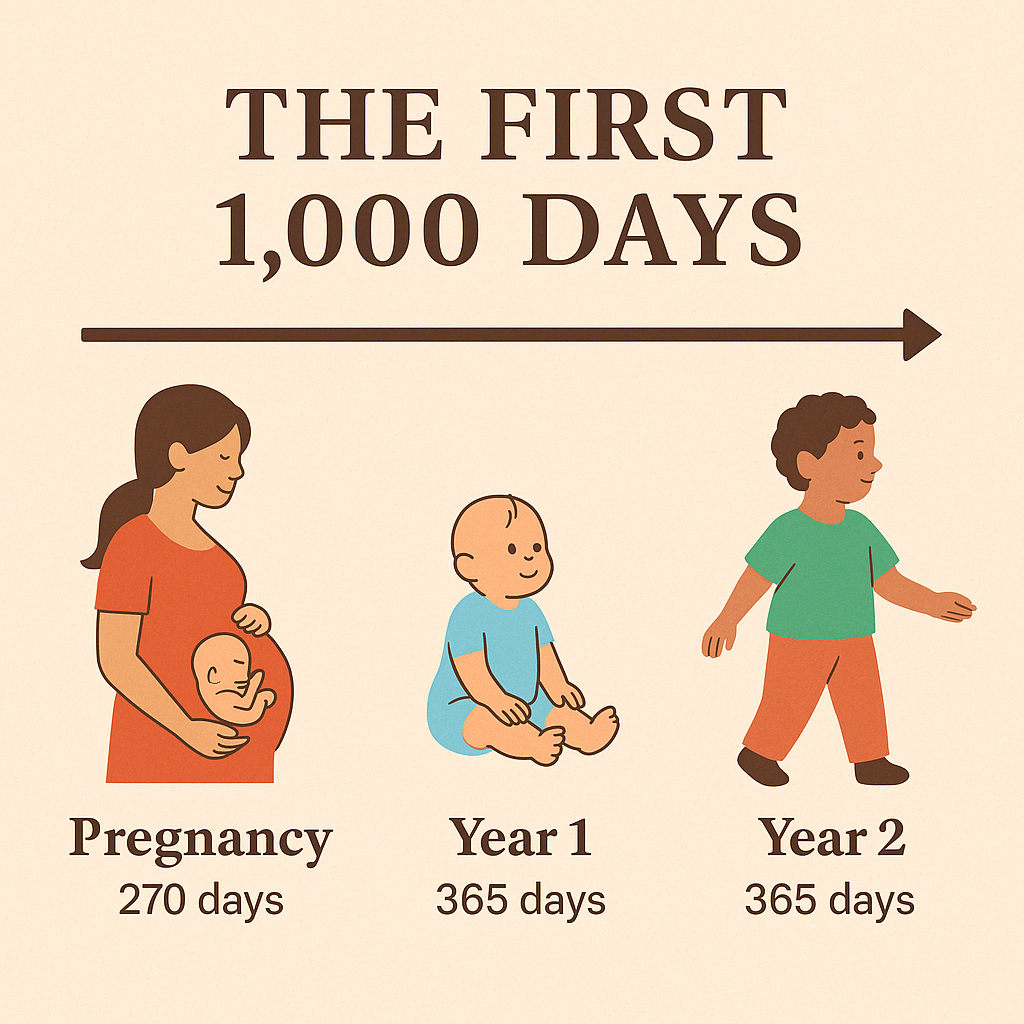Did you know that what a mother eats during pregnancy can shape her baby’s entire future?
Before a child’s first breath, a future is already unfolding. In the first 1,000 days—from conception to their second birthday—the body builds silently, driven by nutrition that fuels growth in ways we are only beginning to understand. It’s a window where small actions can have lifelong consequences, where every meal holds the quiet power to shape a lifetime of health, learning, and resilience.







